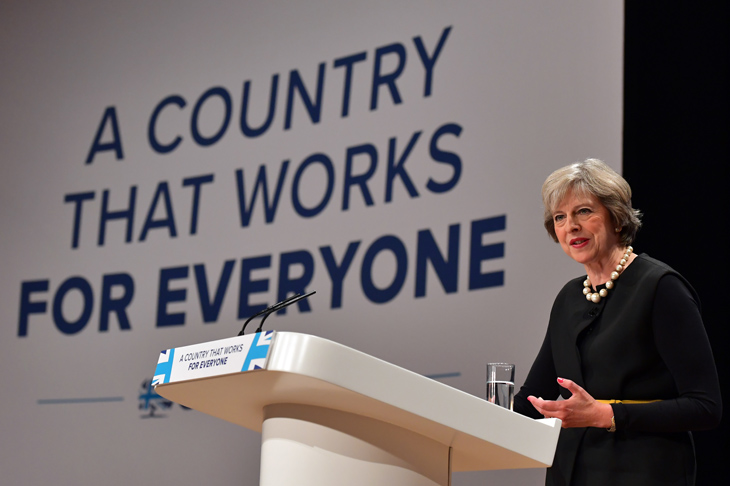Never has the Conservative party entered a general election campaign feeling more confident about victory. Much of that confidence is due to the abject weakness of the Labour party, but much is also due to Theresa May.
Since taking office she has made remarkable progress in setting out a clear vision of Brexit, unifying her party and stabilising the government. The levels of public approval she enjoys are so high that she will probably be forgiven for all the times she promised not to call a snap election.
The reasons that she gave for the election — that she faces ferocious opposition from the Labour party and the Liberal Democrats — are spurious. She is holding a general election because she is a new Prime Minister who needs her own mandate. Yes, victory would help with Brussels but it would also help in guiding her own ideas (grammar schools, National Insurance tax rises) past an often rebellious Tory party.
This will all be dressed up as a defence of the people’s will but, as she knows, this election is not necessary. She is going to the country for two reasons: because she can and because she’ll win. Indeed, with the opposition in such a deplorable state, it would be almost rude not to.
She is likely to return with a landslide majority, but also with a new agenda for Conservatism — and this is where her wider opportunity lies. She is currently bound to several expensive and unwise pledges made by David Cameron when he never expected to win. His 2015 manifesto is padded with ideas that were never intended to be policies but as bargaining chips to be discarded in the expected coalition negotiations — which in the event never took place.
First to go should be the ‘triple lock’ on state pensions. This has led to a bizarre situation where the over-65s have seen their incomes pushed to a record high, while the pain of austerity is focused more and more on those of working age. And while no Conservative ought to raise taxes, it is ridiculous for a prime minister to tie a chancellor’s hands by pledging not to do so. That promise should go too.
In her manifesto, the Prime Minister can elaborate on what James Forsyth has called her ‘third way’ between globalism and nationalism — a commitment to an open economy but one which falls short of elevating free markets to an ideology. Her Conservative party should see inequality in all of its dimensions and ask questions that do not occur to Labour. For example: why has the drop in crime helped the rich more than the poor? Why does family breakup affect the poorest the most? Like Margaret Thatcher, she should repudiate the notion of laissez-faire. When a rising tide does not lift all boats, the government should step in.
If the Conservatives are to avoid going the way they went in the 1990s, she must also address the sense of stagnation among the low-paid. That Labour has been unable to speak coherently for this group does not lessen the urgency. For too many, this has been a lost decade in which real wages have stayed still or even fallen and social mobility has ground to a halt.
George Osborne’s tax credit cuts, so egregious that they caused Iain Duncan Smith’s resignation, are still in place. They will guarantee income stagnation for low-waged strivers, the very people to whom the Conservatives are supposed to be most dedicated. They need help urgently.
Sometimes Mrs May talks as if her arrival in No. 10 marks a Year Zero before which government was for the ‘privileged few’ and after which policies have been made to ‘work for everyone’. She would do better to draw dividing lines with the Labour party rather than her predecessor. David Cameron’s education reforms, for example, were one of his strongest suits — and Mrs May should take care to build on them rather than reject them, as they will take years to feed through into an improvement in the life chances of adults.
She must also take care not to succumb to Brexit tribalism. The vast majority of Brits, even those who voted to Remain, agree that the result of the referendum must be enacted — so she can stop fighting. It would be unfortunate for her to pose as a Brexit Boadicea throughout the election campaign, because so much more is at stake. Leaving the EU now is inevitable and it will not make much difference to hospitals, school reform, tackling poverty, promoting social mobility or shoring up defence. This is what government ought to be about.
The Conservatives cannot look abroad for ideas. No one on the right has come up with effective ways to address the un-even effects of globalisation — certainly not Donald Trump, François Fillon or Angela Merkel. All over the world, the established right is either clinging to a outdated consensus or being overwhelmed by populist insurgents. As this magazine has argued, now is not the time to stick to the old conservative script. Now is the time to write a new one — and in her 2017 manifesto, Mrs May has the opportunity to do just that.






Comments